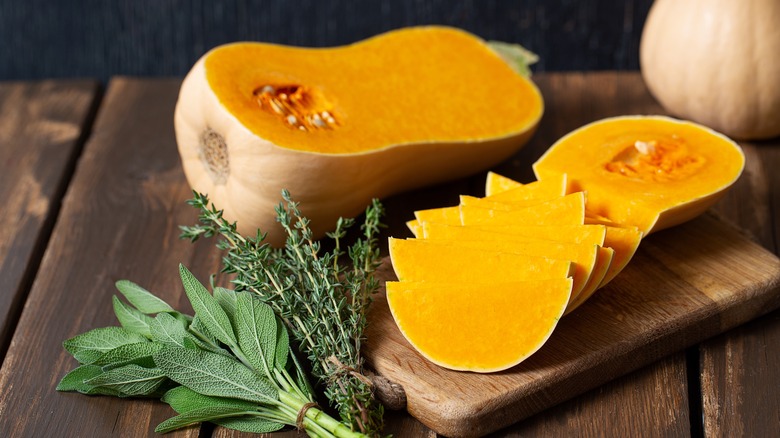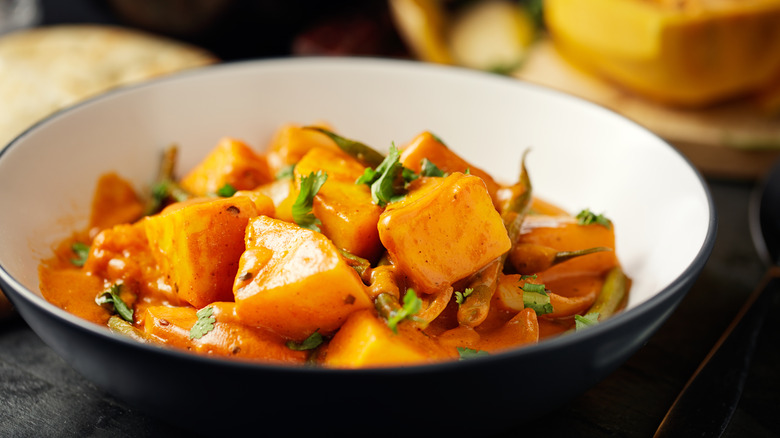The Absolute Best Way To Store Butternut Squash
Butternut squash is a common sight at Thanksgiving, whether it's sliced and roasted or turned into soup. But it's still a winter squash that you can use for months afterward. As long as you store it safely, a healthy butternut squash can last up to three months on average before it spoils. Depending on the particular squash, sometimes they can last even longer in storage. But you need to take good care of your gourd. So how do you do that?
There are a few different ways, but the simplest is to keep it away from heat, moisture, and fruits. Butternut squash thrives at around 50 or 55 degrees Fahrenheit, which means it can be safely stored in just below room temperature locations like cupboards or root cellars. It can even last on the kitchen counter so long as you're careful. It should be somewhere cool and dry, so keep it away from the sink or humid spots. And why keep it away from fruits? The short answer is that simply being near fruits like apples or bananas can rot your butternut squash faster.
Don't let your gourd down
The longer answer gets into how fruits ripen. Many fruits produce a gas called ethylene as they ripen, which causes the fruits and veggies around them to ripen faster. And this means they'll rot faster. Apples, avocados, bananas, peaches, pears, cantaloupe, and tomatoes all produce ethylene naturally.
Squashes like butternut and buttercup squashes aren't classified as "ethylene producers," but they are considered "ethylene sensitive," according to the UCSD Center for Community Health. This means that even if they don't create the gas themselves, they'll still ripen and rot faster when exposed to it. So, while you can make butternut squash and apple soup without any trouble, just don't store the fruit together beforehand.
Gourds like squashes and pumpkins are among the many foods that people treat like vegetables, even though they're actually fruits (they grow from flowers and contain seeds). But in this case, it's safer to store them with real vegetables. Some fruits don't produce ethylene though, so double-check first — if it has "berry" in its name, it's likely safe to keep by your squash.
Butternut squash in all its forms
If you've sliced and diced your butternut squash, and you know you won't need it for a while, you can also freeze it. To properly freeze a butternut squash, it can be diced into cubes about an inch or so wide and placed in a resealable bag. If you're having trouble slicing it — squashes can be tough — try microwaving the squash before you start cutting. If possible, it's even better if you puree it first, as it can last from three to six months frozen this way, according to Food52.
And what if you've made butternut squash soup, which might be the most popular way to eat the food? If you've got the soup sealed up tight, it can last up to five days in the fridge. However, you can also freeze it in the same sealed container, and the soup should be alright for about three months in the freezer. As with any frozen food, let it thaw in the fridge before you heat it up.


